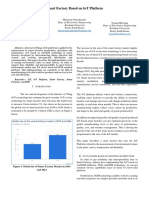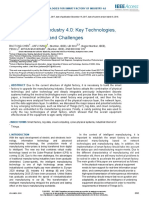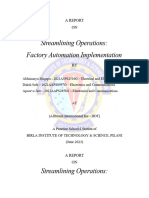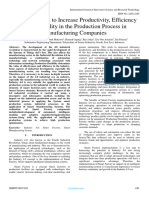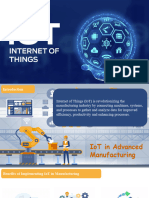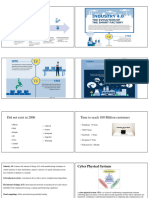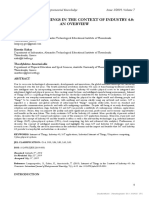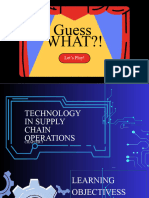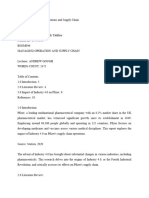IoT based Smart Factory System
ABSTRACT
The rapid advancement of Industry 4.0 has revolutionized traditional manufacturing
systems by integrating cyber-physical systems, IoT technologies, and real-time analytics.
Smart factories represent the next stage in industrial automation, where interconnected
devices and intelligent control mechanisms collaborate to enhance production efficiency,
reduce operational costs, and enable predictive maintenance. This project explores the
development of an IoT-based Smart Factory System designed to address the growing need
for adaptive, data-driven manufacturing solutions. Background of IoT in Smart
Factories:
The Internet of Things (IoT) serves as the backbone of modern industrial automation by
connecting sensors, machines, and control systems into a unified network. Through
continuous data collection and analysis, IoT enables real-time monitoring, rapid fault
detection, and dynamic resource allocation. Traditional factories rely heavily on manual
supervision, whereas IoT-based systems provide an autonomous environment capable of
making data-driven decisions with minimal human intervention. Objective of the Project:
The primary objective of this project is to design and simulate an IoT-based Smart Factory
prototype capable of monitoring environmental parameters, managing machine operations,
and executing automated responses. The system leverages microcontrollers, sensors, and
communication protocols to create a cohesive platform that ensures efficient operation and
scalability for industrial use. Scope and Significance:
The implementation of an IoT-based Smart Factory has far-reaching implications in
modern industry. It not only enhances production output but also introduces predictive
maintenance strategies, reducing downtime and prolonging machine life. Furthermore, by
integrating cloud platforms, the system enables remote supervision, making it ideal for
large-scale distributed manufacturing units. This project demonstrates how such a system
can be conceptualized and implemented using affordable hardware and open-source tools.
��Proposed System Overview:
The IoT-based Smart Factory System developed in this project integrates multiple layers of
technology. At the hardware level, sensors continuously gather data such as temperature,
machine vibrations, and proximity measurements. This data is processed by
microcontrollers, which act as local nodes. The information is then sent to a centralized
controller that coordinates machine activity based on predefined rules and real-time
conditions. The system architecture follows a hierarchical model, with a master device
managing several slave devices to ensure synchronized operations. By implementing this
architecture, the factory can achieve coordinated control over multiple production lines
while maintaining flexibility to scale the system as needed. Expected Outcomes:
Upon completion, the IoT-based Smart Factory System is expected to deliver a functional
prototype that demonstrates key Industry 4.0 principles. The outcomes include: 1.
Real-time monitoring of industrial parameters. 2. Automated control and response
mechanisms. 3. Efficient communication between devices using master-slave architecture.
4. Integration of multithreading concepts for parallel task execution. 5. A scalable
framework that can be adapted to various manufacturing environments. This abstract sets
the foundation for the project by outlining its motivation, objectives, and significance. The
subsequent sections of the report provide detailed insights into the methodology, system
architecture, implementation details, and evaluation of the IoT-based Smart Factory
System.




